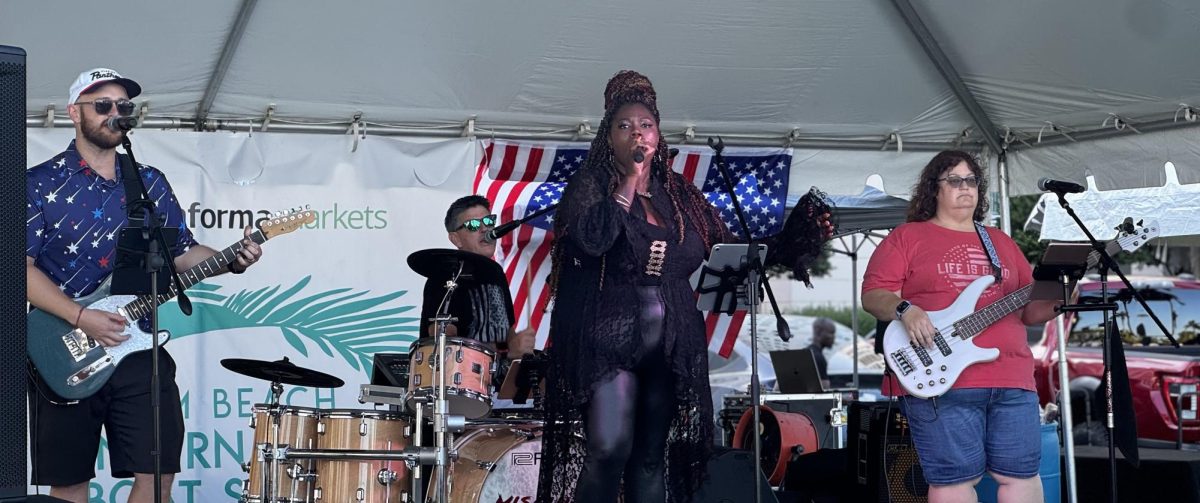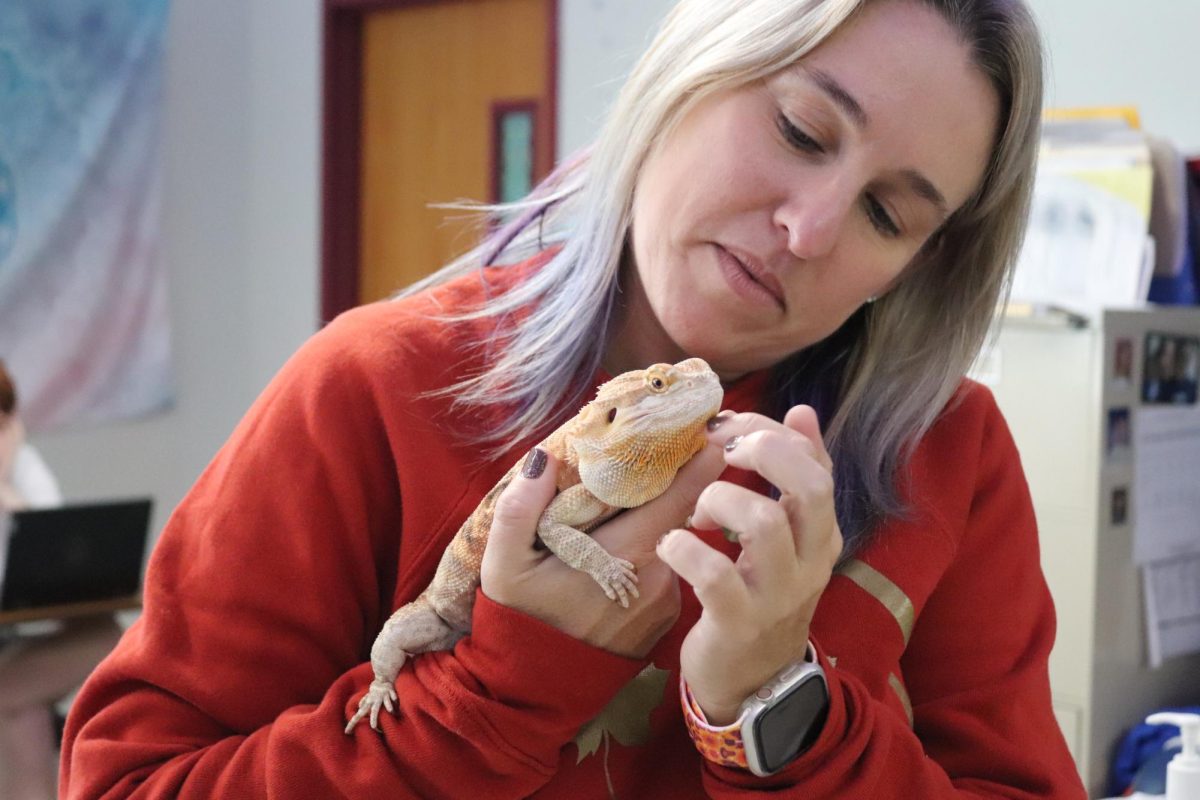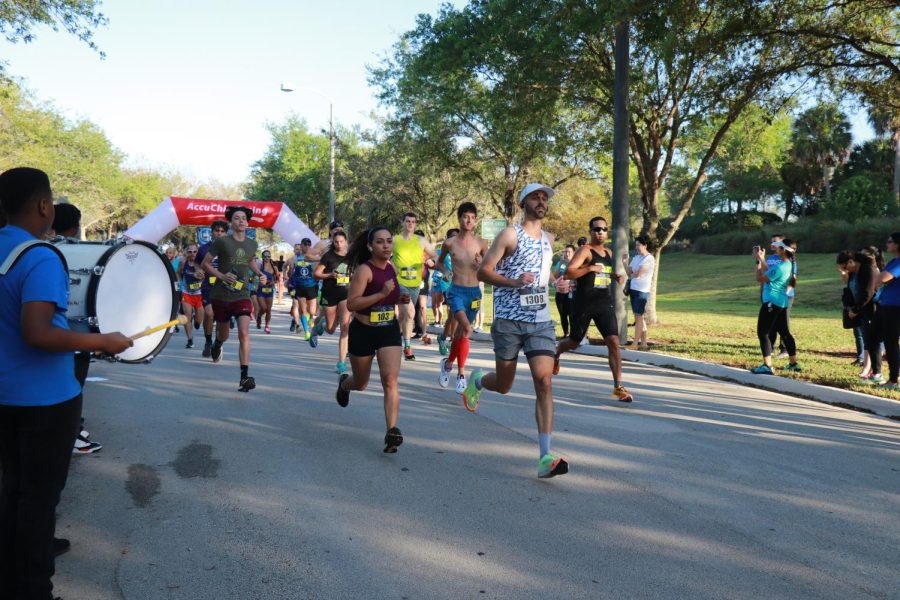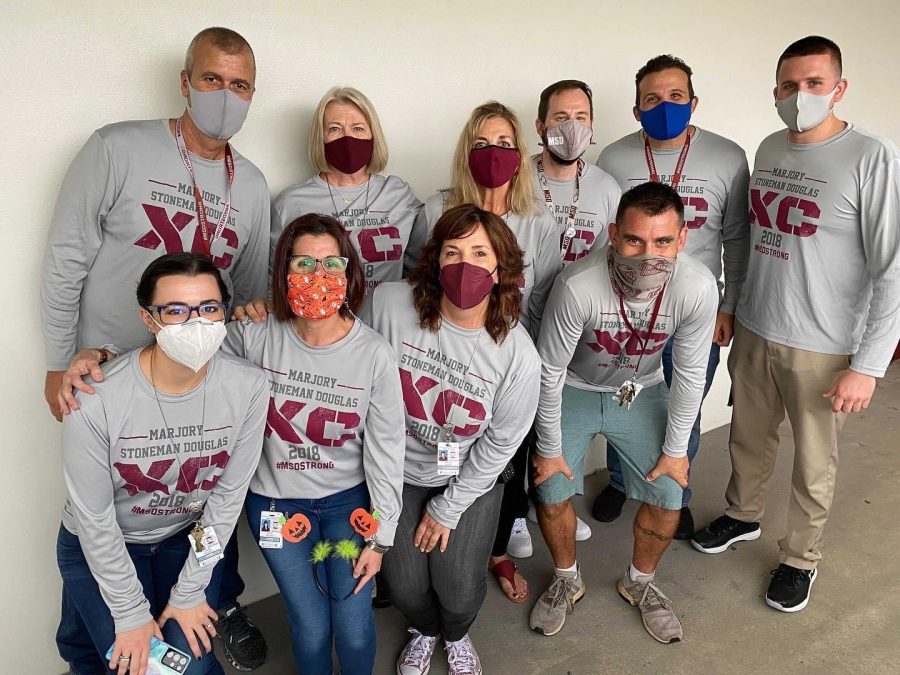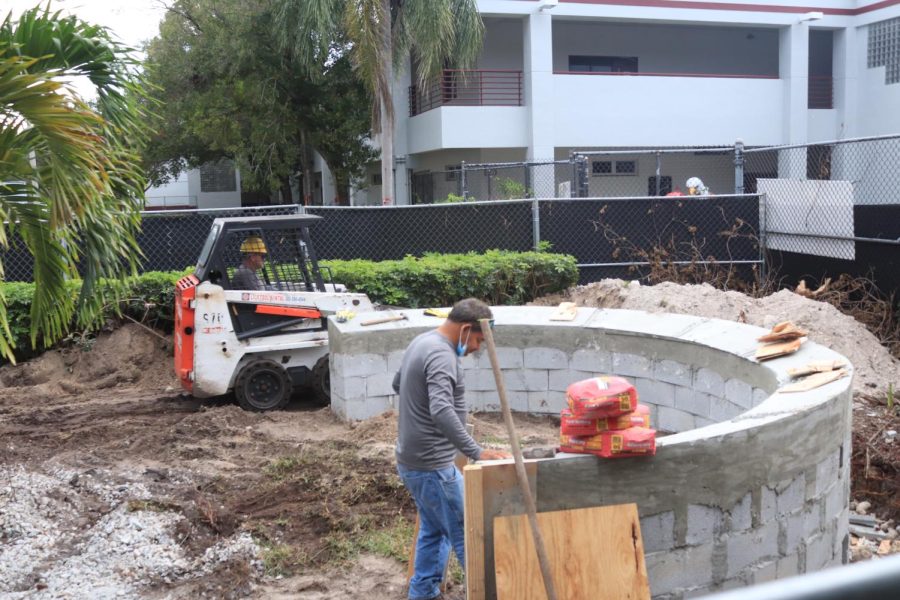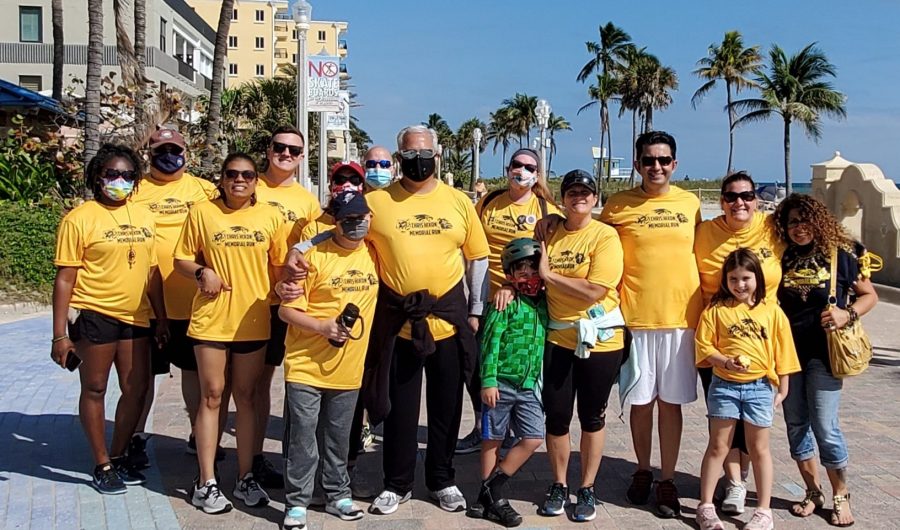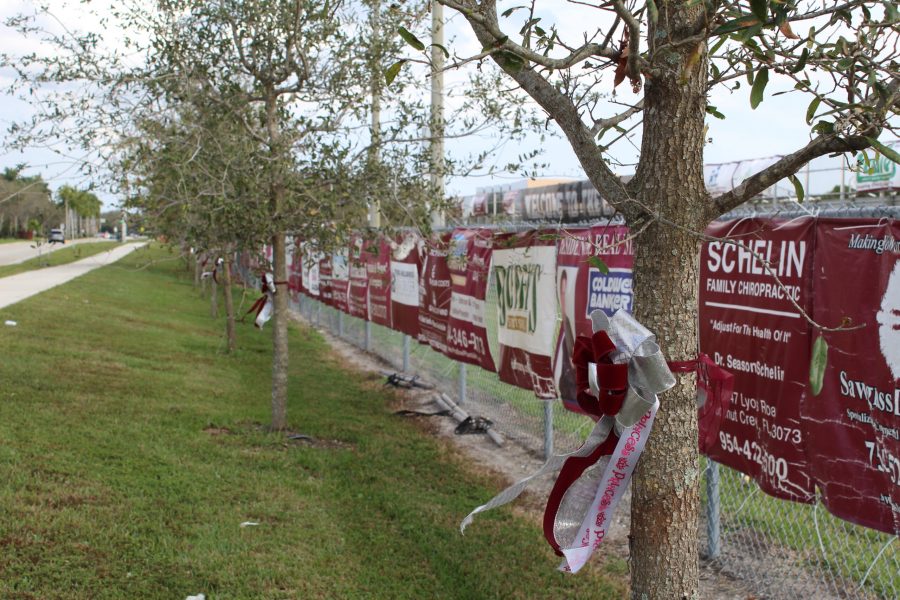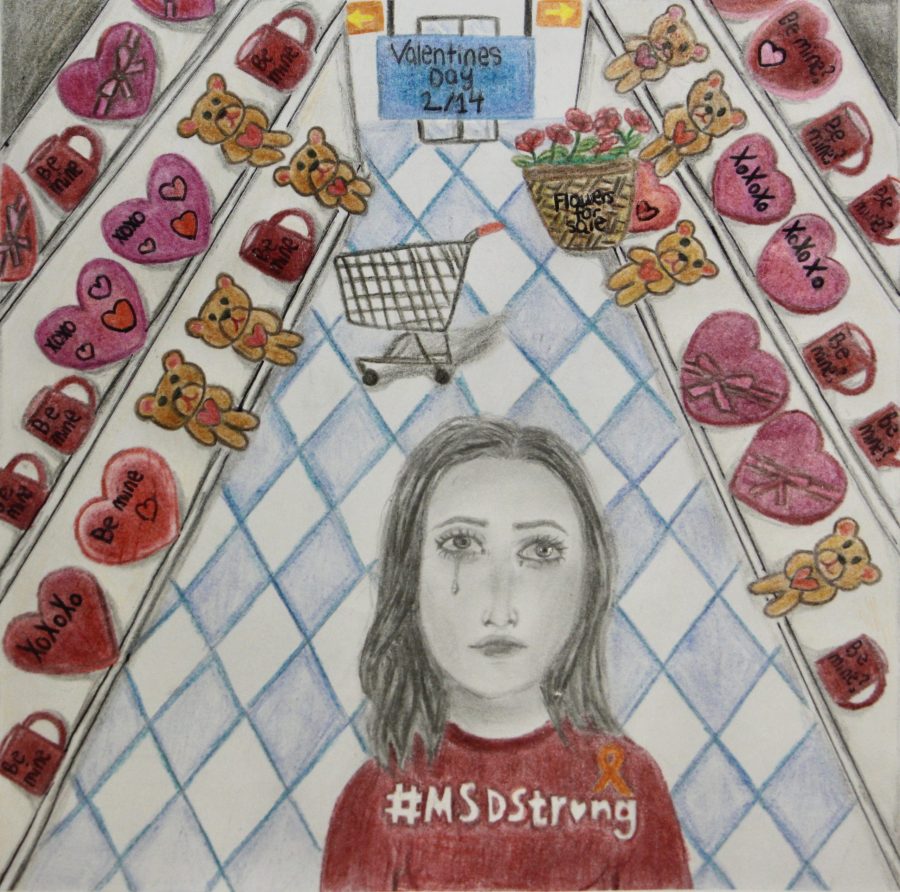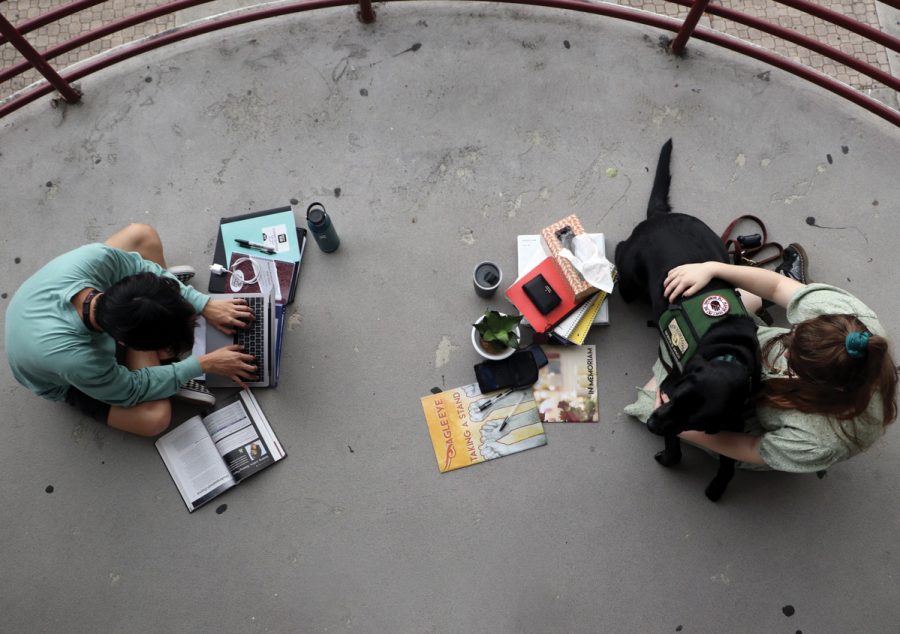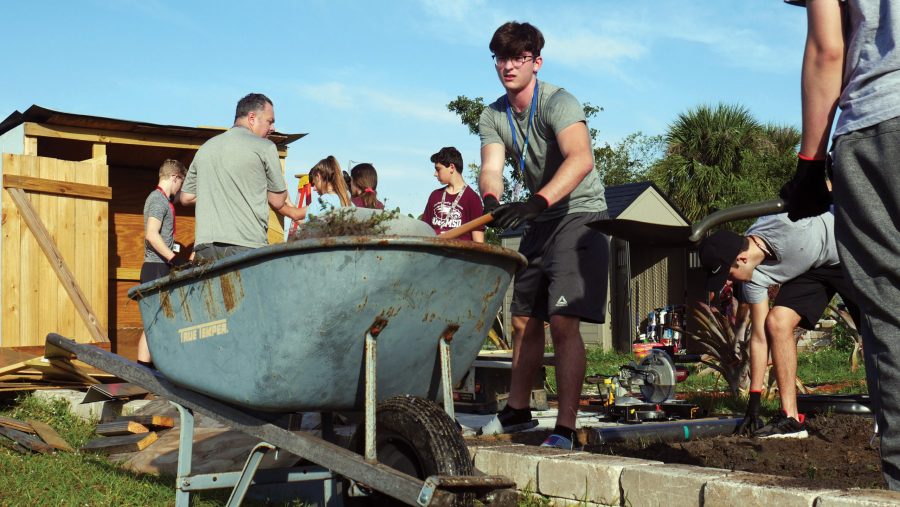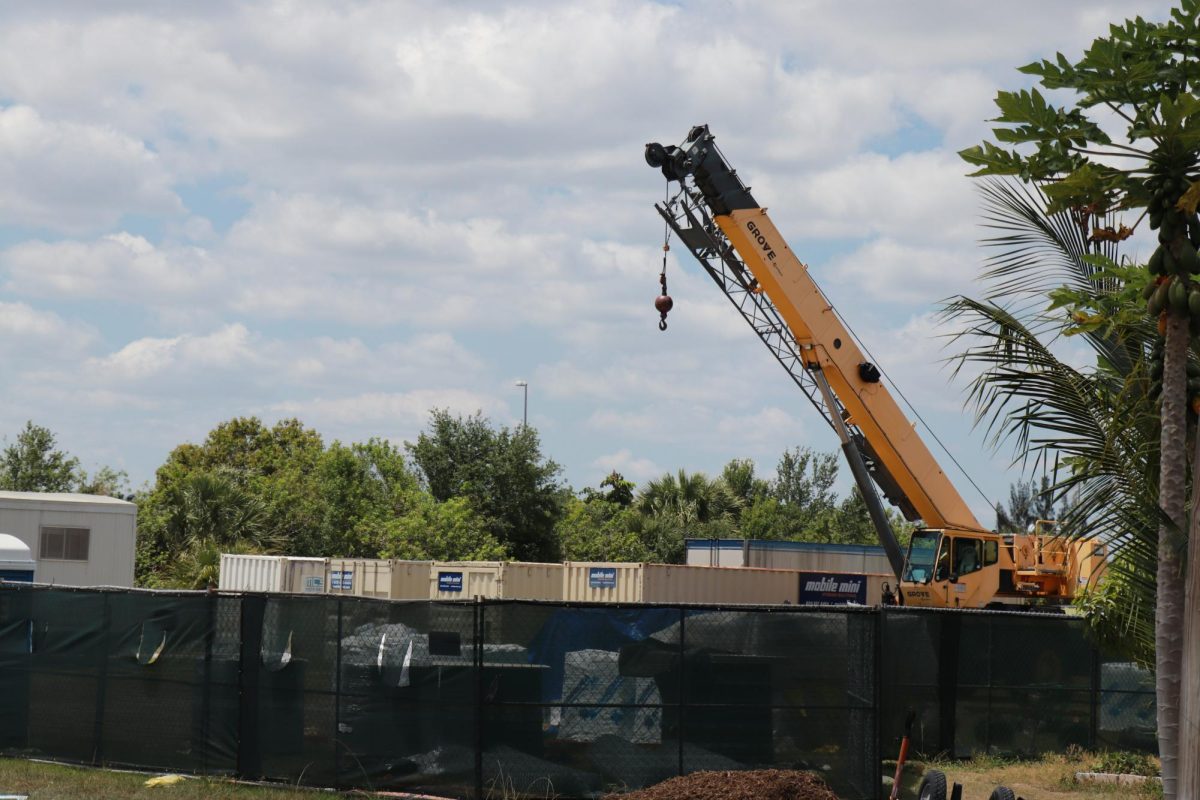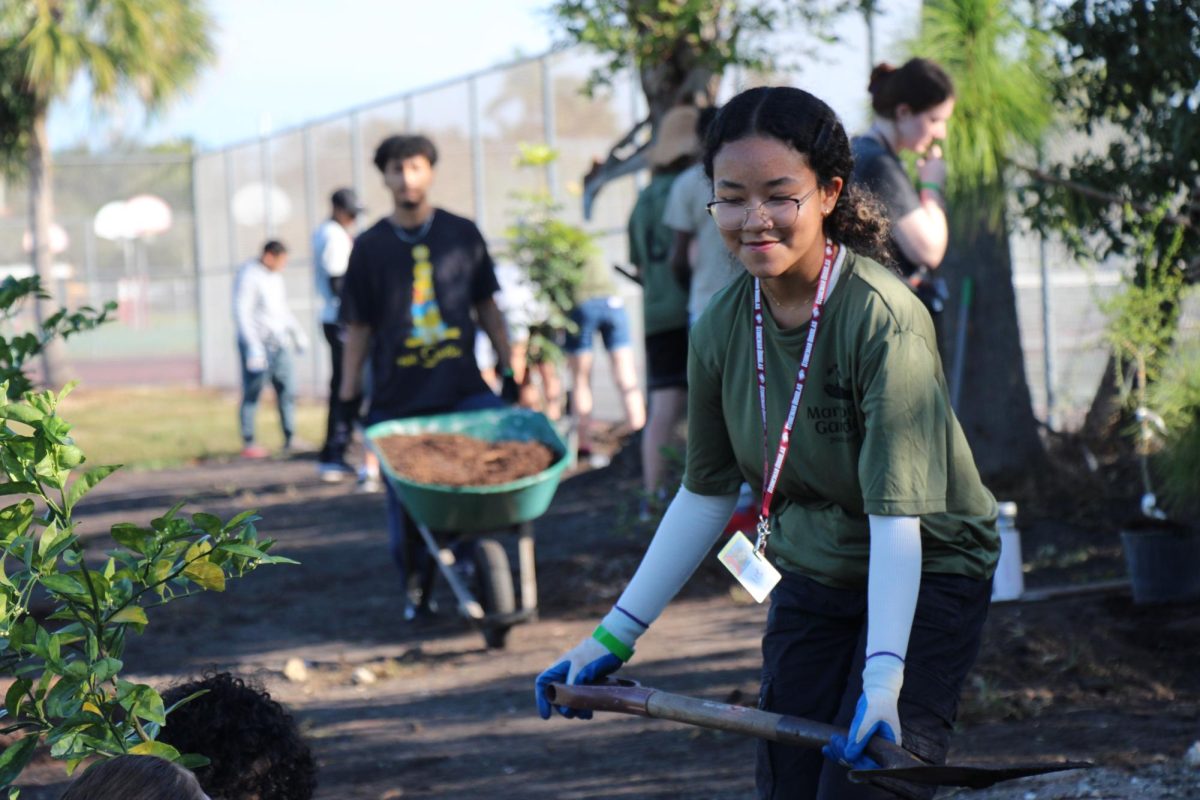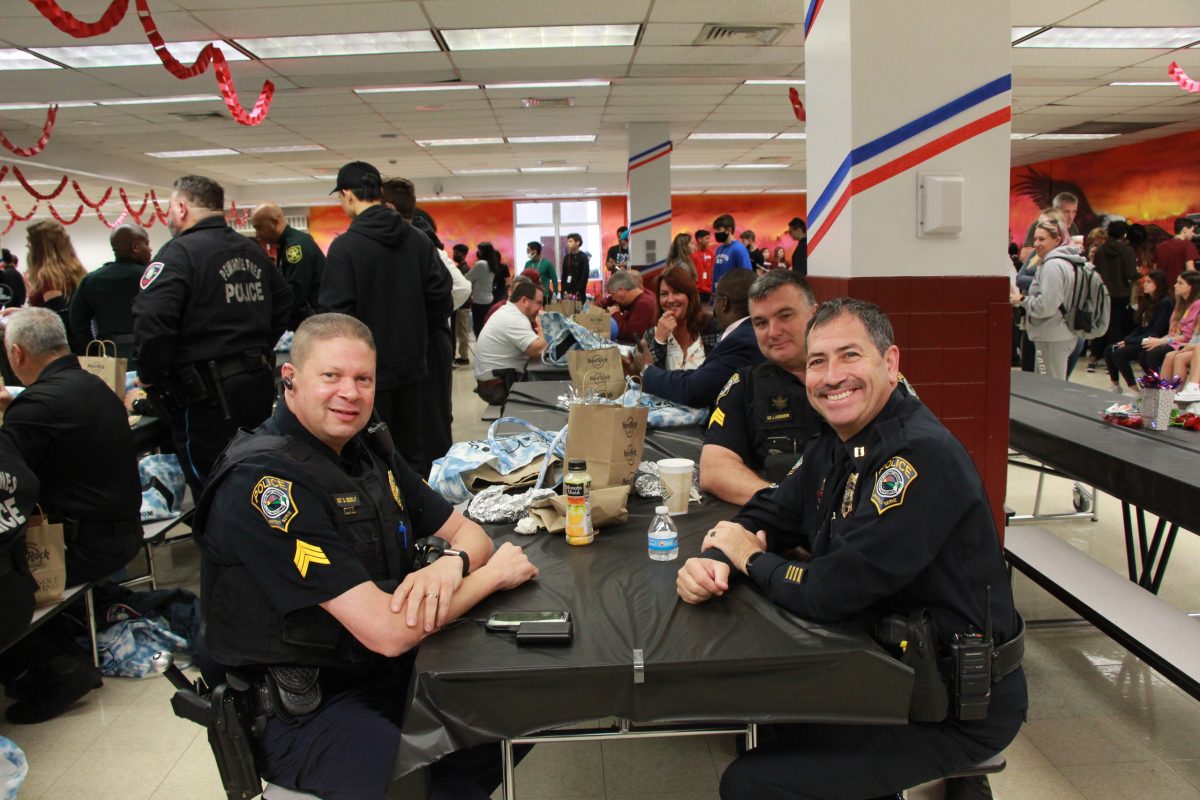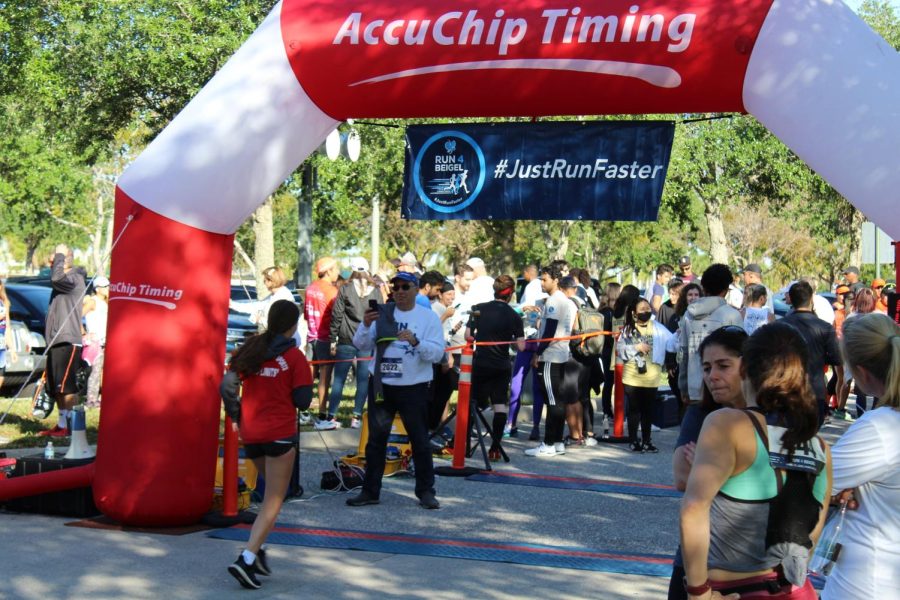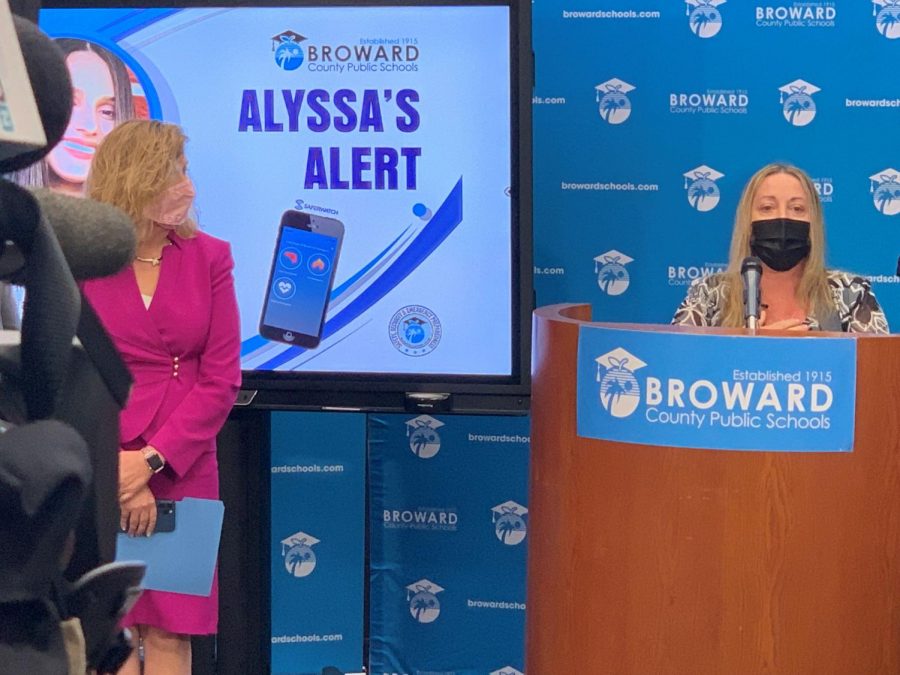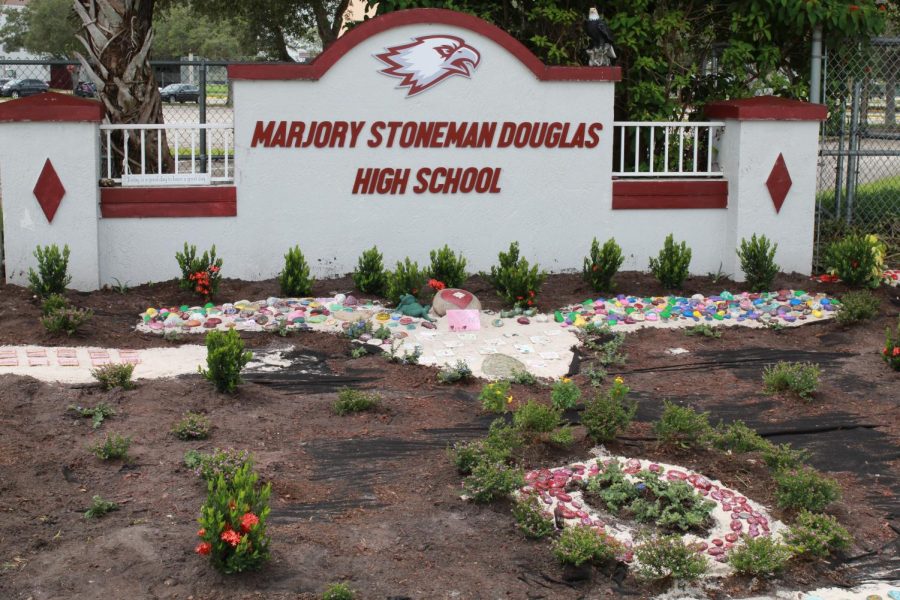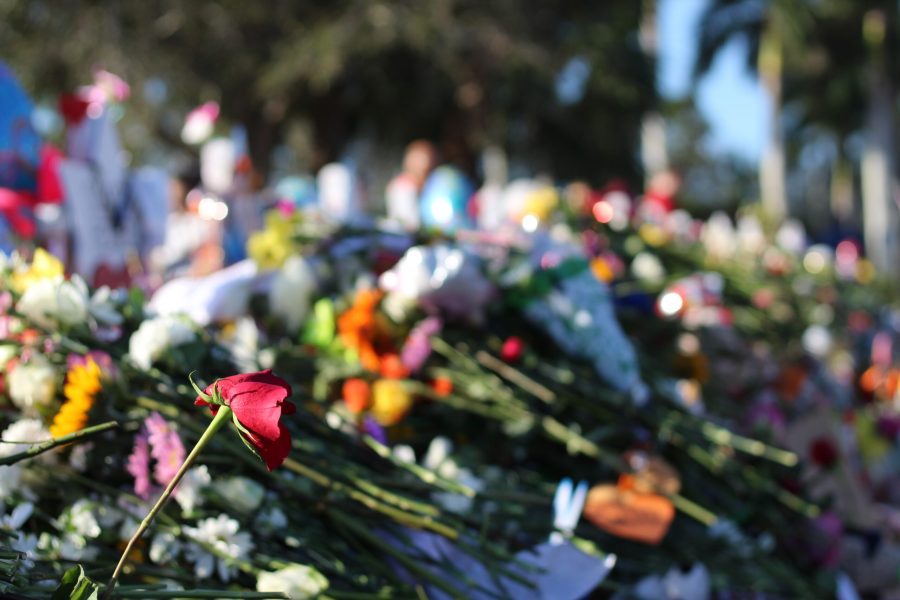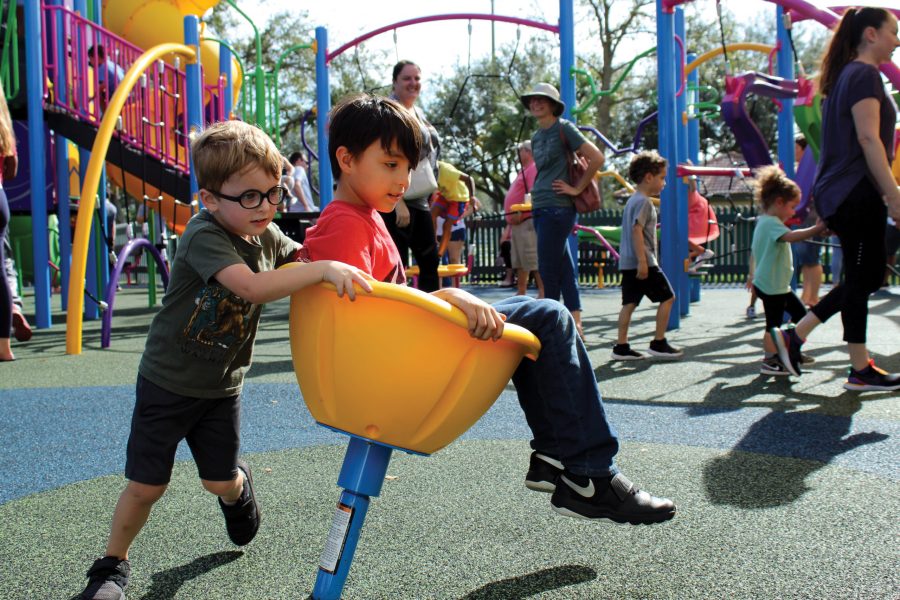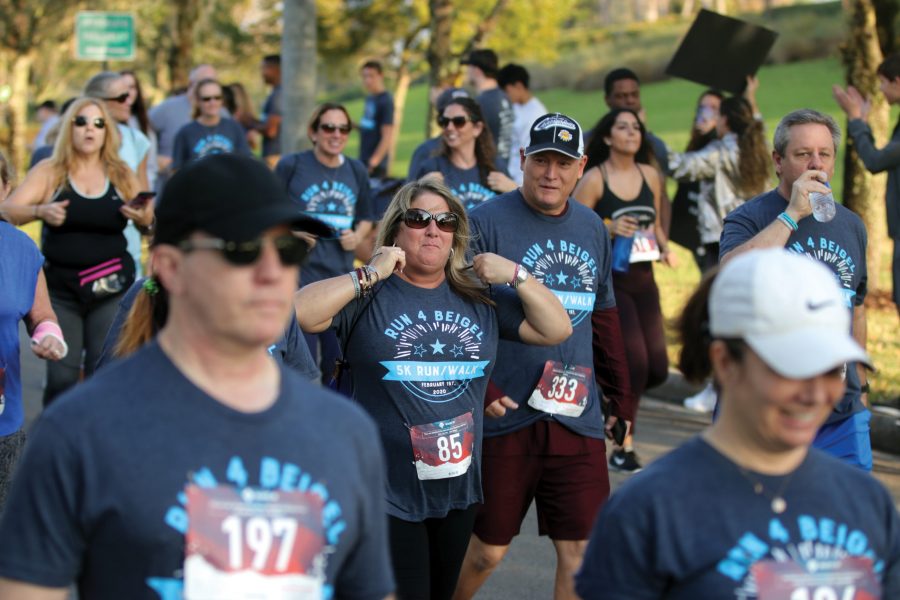
Sweaty hands trembling. Knives of chest pain piercing between ribs. Breath growing shallower and quicker with each breath inhaled and shakier with each exhale. Heart rate tripping over itself. Eyes glazing over as vision turns inside. Instead of seeing surroundings, seeing only distressing snapshots of the past. Instead of focusing on any sound, hearing only running dialogue of anxious thoughts. This is what retraumatization feels like, and this is the daily reality for many at Marjory Stoneman Douglas High School who deal with PTSD and anxiety.
Reliving the Memories
According to the Gun Violence Archive, as of Sept. 3, 2019, there have been 289 mass shootings in the United States. Two hundred eighty-nine headlines that have stolen the spotlight on phones and televisions; 289 communities forever changed. The repeated incidents of mass shootings has caused some in the MSD community to relive their trauma.
According to the Soldiers Project, “Retraumatization is the emotional and physical state that someone with PTSD tries to avoid because it feels like the event is happening again. It could be brought on by similar surroundings, information taken in by any of the senses (hearing, seeing, etc.), dynamics (loss of power, control, or safety), or situations.”
The yearly celebration of the Fourth of July is one of the common situations where gun violence victims experience retraumatization. Individuals suffering from PTSD can be triggered by the sounds of fireworks.
Trigger Warning
MSD students and staff members report that monthly code red drills are frequent instances of retraumatization for them.
“Code red drills [bother me] more than fire drills just because I was in the actual room that normally set off the fire alarm,” Culinary Arts teacher Ashley Kurth said. “The code red drill definitely [affects me]—it’s a tingling feeling on the back of my neck and a slow kind of coldness that creeps over my head; sometimes your mind fogs and wipes out and you gotta just stop, take a moment, breathe and just reground yourself.”
Based on a survey of 280 juniors and seniors at MSD, 46% said the code red drills continue to affect their mental health. This survey represents solely the opinions of students who were present at school on Feb. 14, 2018.
“The fire drills and code red drills still impact me to this day because they remind me of that day and traumatize me,” senior Maha Anwar said.
At times, police presence on and near campus can also be retraumatizing. According to the same survey of 280 MSD juniors and seniors, 58% said they feel nervous when there is a large police presence around them. This feeling of uneasiness occurs because students experienced a similar presence of police on Feb. 14, 2018.
“The first day back [to school after Feb. 14, 2018, when the police officers were at MSD] it made me feel pretty great; it was nice to feel supported, especially by people who are supposed to protect us, but now it honestly just makes me a little nervous,” senior Haley Shepard said.
News trucks parked around the perimeter of campus have also been known to make students feel unsettled on their way to school. The number of news trucks that are constantly around MSD and the helicopters that fly over campus and Pine Trails Park at every MSD related event have further traumatized the MSD community.
As recorded by the same survey of 280 juniors and seniors at MSD, 80% become wary or unnerved when news trucks or helicopters are present around MSD. These feelings of retraumatization occur because of the news stations that have followed members of the MSD community around since the shooting.
“[When news trucks and helicopters are at MSD], I get angry, especially when it’s just a random Channel 7 news truck parked under the overpass,” Shepard said. “Like what are you even here for? You got your story; now leave us alone.”
Retraumatization does not only occur in instances close to home. Seeing or hearing accounts of different shootings in the news or on social media can be just as triggering as code drills. For survivors of gun violence, feelings of anger, sadness and anxiousness can be quickly brought back to the surface when seeing reports of new gun violence acts. Based on the same survey of 280 MSD juniors and seniors, 59% said they feel retraumatized when they see news involving a shooting.
“For people with post-traumatic stress disorder, the past can return at any moment. In response to triggering circumstances or events, which usually involve some type of sensory or emotional stimulation, they may relive or remember the traumas that affected their lives so deeply, with varying shades of intensity,” according to an article by Bright Quest Treatment Center, a psychiatric center to treat complex mental health disorders. “While a wide range of occurrences can affect PTSD sufferers, there are some triggers that provoke especially strong reactions, powerful enough to make it seem as if the terrible events are happening all over again.”
Publicity of similar occurrences of one’s own trauma often times brings back memories or feelings that were felt at the time of the event.
“[When seeing news of a shooting] it kinda brings me back to the day. I get a little sad, reflective, and I feel for the people who are going through it,” creative writing teacher Stacey Lippel said. “It just sort of takes me back to exactly how I felt; it kind of makes me feel helpless.”
Grieving and Growing
When facing the loss of friends, family or community members, it can be difficult to focus on personal healing.
“When you’re dealing with multiple losses or even one important loss, the most important thing is to get help and support and to go through the process with people who they trust. And grieving is a very natural thing,” Program Director of Eagles’ Haven Julie Gordon said.
After the shooting at MSD, many were focused on personal growth, but with the recent losses of additional MSD students and alumni, some had to either put their healing from one trauma on hold to grieve and cope with additional losses or struggle to handle both traumas simultaneously.
“I was one of the teachers in the 1200 building, and I lost students in all that chaos a couple of years ago and [sophomore Steve Manoj’s death] hit me even harder, just because there wasn’t a lot of chaos around it,” math teacher Michael Powell said.
Everyone handles tragedies differently and, in turn, copes and heals in various ways.
On Saturday, Aug. 24, MSD alumna Hannah Bonta and her mother were killed in an act of domestic violence. The loss of yet another MSD alumni has reopened wounds for those who knew and taught Bonta during her time as a student at MSD.
“Unfortunately, being a teacher at this school you have to get used to losing kids… It was harder with Hannah because I knew her so personally… She was a super sweet kid that always wanted the best for everybody,” history teacher Ernest Rosperski said.
Coping with Trauma
Healing from a traumatizing experience can be impossible without the right resources. Organizations like The Rebels Project and The Trauma Therapist Project make sure survivors have those resources. These organizations work towards helping people heal and cope with their trauma symptoms.
“Peer support is really important, having people who know, who really get it, knowing where to go when you need professional help is really important also,” Executive Director of The Rebels Project Heather Martin said. “It takes time, but you need to learn your own red flags, like when it is a time you need to seek help, when is a time you are triggered. Sometimes we minimize it like ‘oh it’s been two years, why am I still feeling this way? I don’t want to talk about it.’ But you need to be cognizant of those red flags and what that looks like for each individual person.”
The local organization Eagles’ Haven is another resource that is available for members of the community. Anyone is welcome to attend Eagles’ Haven for a variety of different healing classes, such as yoga, cooking, art and kick boxing.
“Talk to someone, the most important thing is to talk to someone you trust, hopefully, a professional as well. But there is something so incredibly healing about joining a support group,” Gordon said. “There’s a difference between grieving and complex grief or trauma, so it’s important to work with a professional as well.”
If you or someone you know is having a hard time coping with trauma, reach out to one of these organizations or a trusted adult.
This story was originally published in the October 2019 Eagle Eye Print Edition.




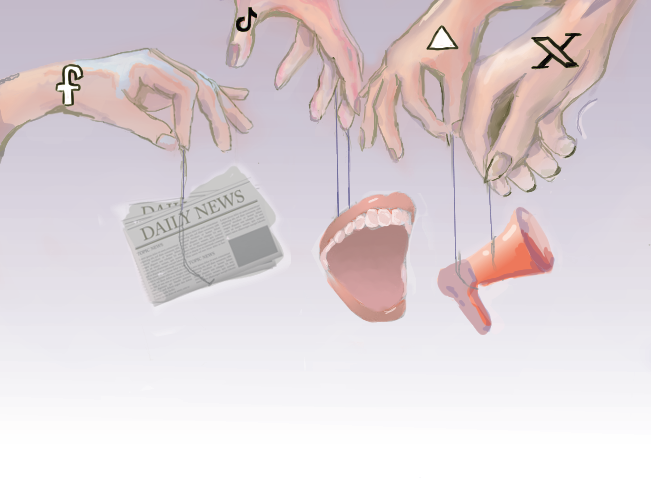
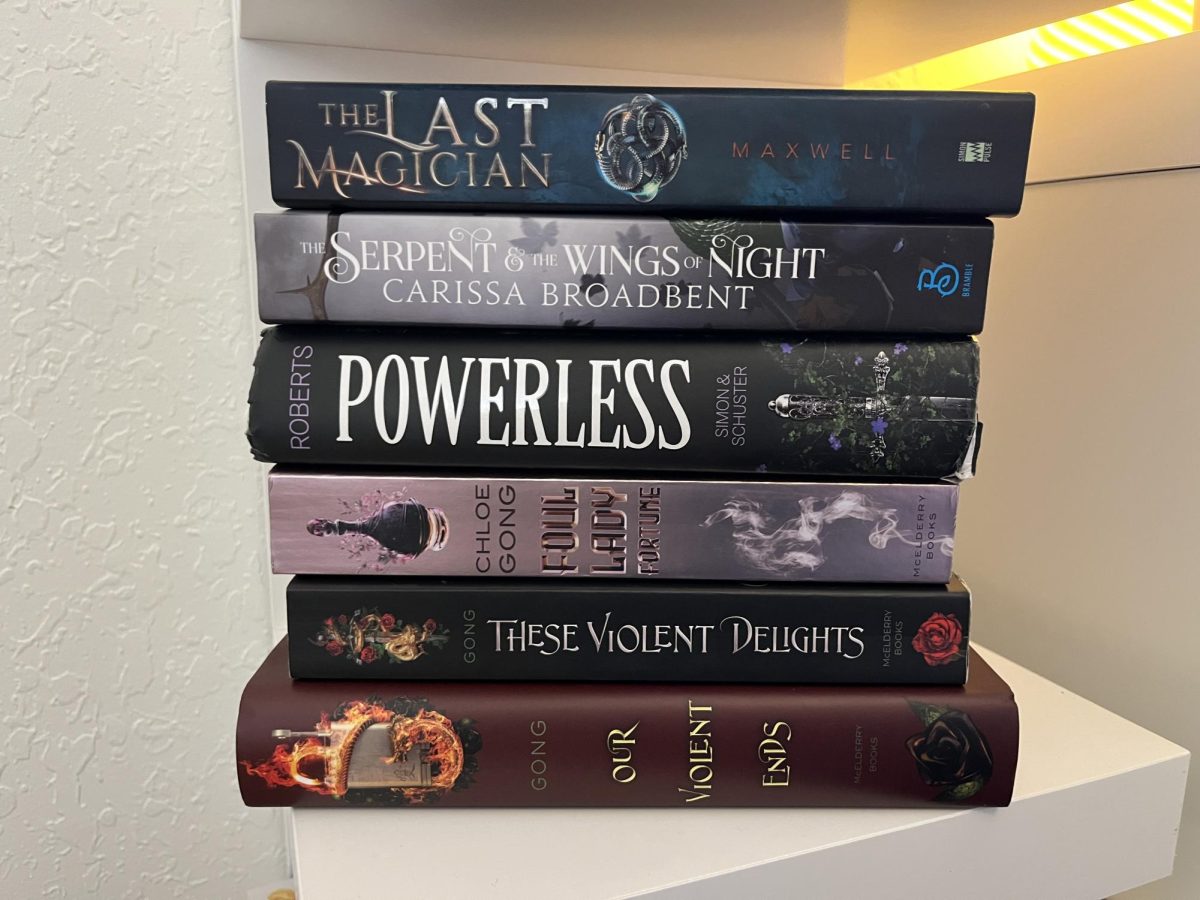
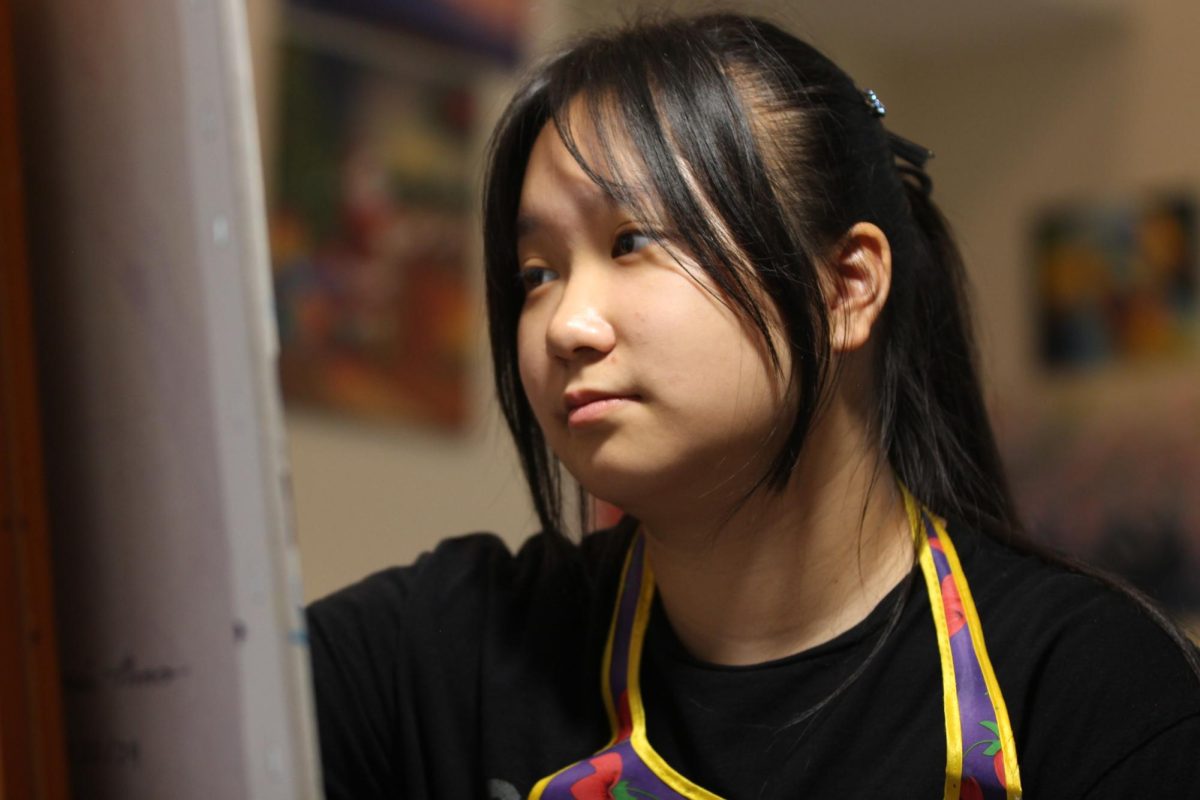
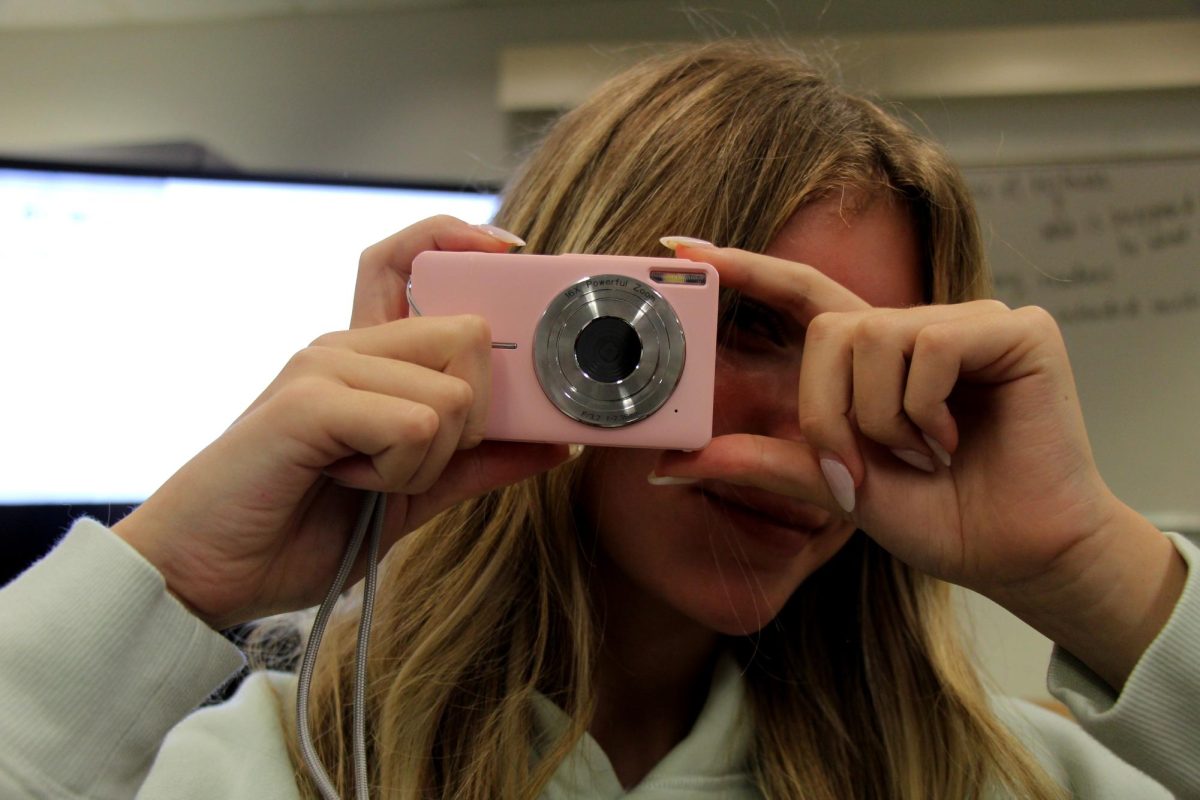
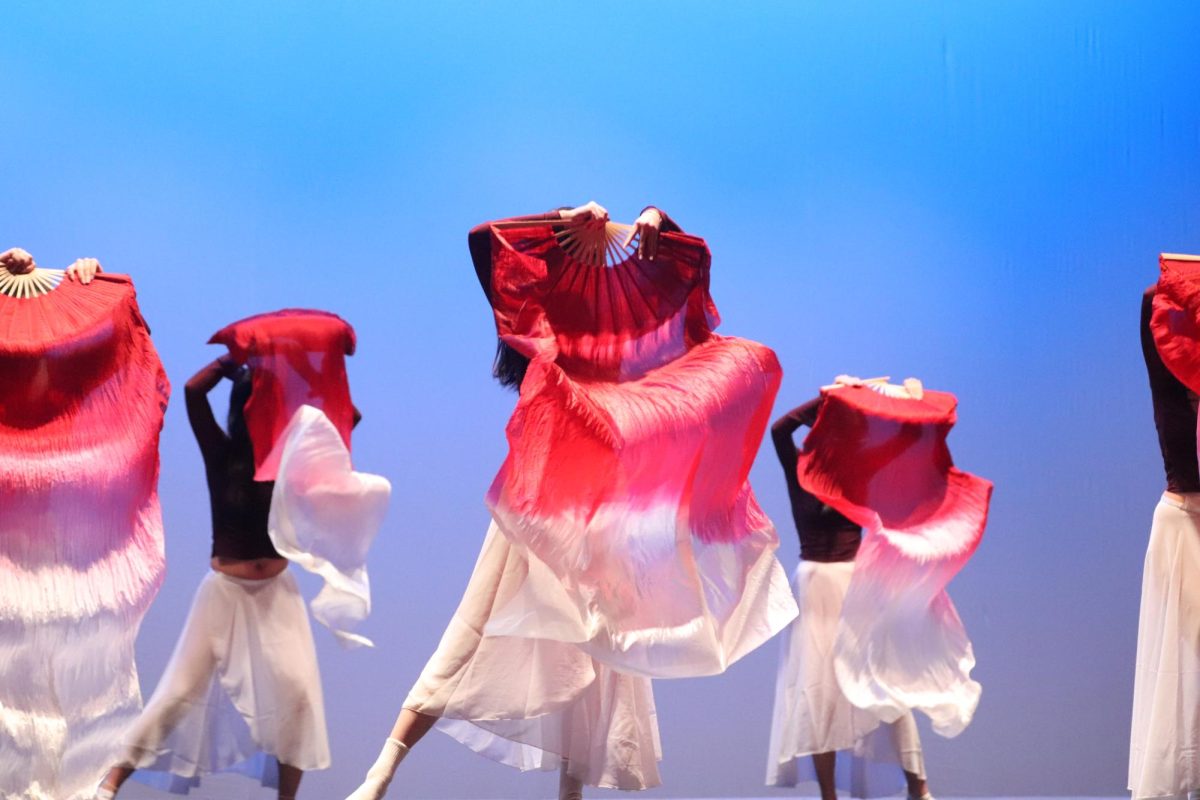
![National Honor Society Sponsor Lauren Saccomanno watches guest speaker Albert Price speak to NHS members. National Honor Society held their monthly meeting with Price on Monday, Nov. 4. "[Volunteering] varies on the years and the month, but we have started a couple new things; one of our officers Grace started a soccer program," Saccomanno said. "We have been able to continue older programs, too, like tutoring at Riverglades. NHS's goal is to have as many service projects as possible."](https://eagleeye.news/wp-content/uploads/2024/11/xNOeKNVwu7aErpVyJHrHogagZUUcLLosjtbIat94-1200x900.jpg)

![Ice Ice Baby. Skating to "Waltz" and "Romance" during her long program, figure skater Ava Zubik competes at the Cranberry Open in Massachusetts on Aug. 12, 2022. She scored a total of 86.90 on her short and free skate program, earning fifth place overall. "I try to make it [competing] as fun and enjoyable as I can because it's my senior year, and so I want to really enjoy competitive figure skating while it lasts," Zubik said.](https://eagleeye.news/wp-content/uploads/2024/11/skater1-799x1200.jpg)
